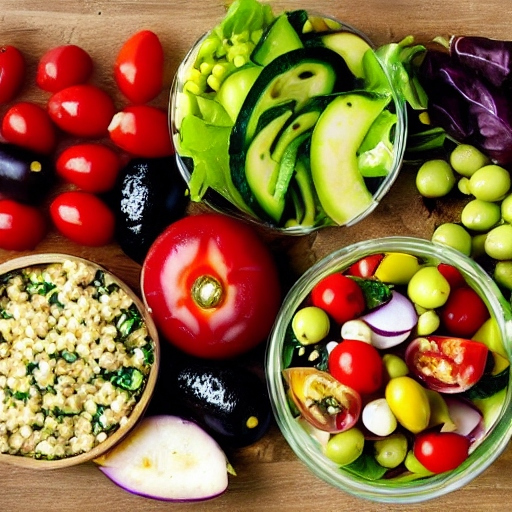Jump to:
Ever found yourself stuck in the egg aisle at the grocery store, debating whether to refrigerate your eggs or not? Trust me, I've been there too. This question perplexed me for so long, I decided to dive deep and clear the air once and for all. So, here's the fruit of my labor—a comprehensive guide on 'Should you refrigerate eggs?'
The Tale of Two Continents
The world of eggs surprisingly took me on a global journey, revealing that geography plays a pivotal role in how we store this universal staple. The differences between egg handling in the United States and Europe became a fascinating subject of study for me.
Washing and Refrigeration: The American Way
The Washing Process
In the United States, the egg production process includes a step known as 'washing.' This involves cleaning the eggs with water and detergent to remove dirt and contaminants. While it makes the eggs look clean and uniform, it also strips the eggshell of its natural protective layer. Here's a link to the USDA guidelines that outline the washing process: USDA Egg Washing Guidelines.
The Need for Refrigeration
Because of this washing process, eggs in the U.S. become more susceptible to bacterial contamination, particularly Salmonella. As a result, refrigeration becomes necessary to keep the eggs safe. The FDA provides a helpful resource on egg refrigeration and safety here: FDA Egg Safety Guide.
Unwashed and Room Temperature: The European Approach
Prohibiting Egg Washing
Contrarily, the European Union prohibits the washing of eggs. By leaving the natural protective layer intact, the eggs remain safe without refrigeration. The European Food Safety Authority (EFSA) has a detailed explanation of the logic behind this decision: EFSA Egg Safety.
Shelf Life and Quality Control
The shelf life of eggs at room temperature in Europe is maintained through strict quality control measures from farm to store. This process also helps in preserving the taste and nutritional content of the eggs. You can read more about the European egg quality standards here: EU Egg Marketing Standards.
The Philosophical Divide
I couldn't help but reflect on the philosophical divide between these two approaches. The U.S. focuses on cleanliness and uniformity, even if it means removing the egg's natural defenses. Europe, on the other hand, emphasizes the natural integrity of the egg.
A Personal Reflection
Having experienced both the American and European ways of handling eggs, I can say that each method has its merits and drawbacks. In my time in the U.S., I never questioned refrigerating eggs. In Europe, I appreciated the convenience of not needing to do so.
Diving into Science: Bacteria & Refrigeration
When I started digging into the science of egg refrigeration, I quickly realized that it was a battlefield where bacteria and temperature squared off. The more I learned, the more fascinated I became with this microscopic world, and the role that refrigeration plays in controlling it.
Salmonella: The Invisible Enemy
Salmonella was the main culprit I found in my research. It's a bacterium that's notorious for causing food poisoning, and it loves to grow on eggs. I was shocked to learn how quickly it could multiply at room temperature. I found this detailed explanation by the Centers for Disease Control and Prevention (CDC) on Salmonella, which helped me understand the importance of temperature control: CDC Salmonella Information.
The Science of Refrigeration
Refrigeration turned out to be the hero in this story. By keeping eggs at a cooler temperature, usually below 40°F (4°C), the growth of Salmonella is slowed down significantly. The FDA also provides a comprehensive guide on the safe handling of eggs that stresses the importance of refrigeration: FDA Egg Safety Guide.
Bacterial Growth Dynamics
My curiosity didn't stop at Salmonella. I wanted to understand the general bacterial growth dynamics on eggs. Various other bacteria could potentially grow on eggs, but the natural protective layer and refrigeration could be incredibly effective in controlling them. I stumbled upon a research paper from the Journal of Food Protection that goes into more detail: Journal of Food Protection Paper.
Egg Shelf Life: Refrigerated vs. Non-Refrigerated
The shelf life of eggs became another important piece of the puzzle. I looked at two scenarios—eggs kept in the fridge and eggs stored at room temperature.
Refrigerated eggs, as per the USDA, can be safe to eat for up to five weeks beyond the pack date. So, even though I tend to forget about those eggs sitting in the back of my fridge, they're generally fine.
On the other hand, eggs kept at room temperature should ideally be consumed within a week or two. Beyond this period, the risk of bacterial growth increases.
The Taste Test
I found myself pondering over one intriguing question: Would there be a discernible difference in taste between refrigerated and non-refrigerated eggs? Being a curious soul and somewhat of a food enthusiast, I decided to conduct my own taste test.
Setting Up the Experiment
I selected a dozen fresh eggs, half of which I refrigerated and the other half I kept at room temperature. To make this a fair test, I ensured that all the eggs were from the same source and batch. I consulted this guide on tasting eggs to help me with the process: Serious Eats: How to Taste Eggs.
Cooking the Eggs
After allowing the room-temperature eggs to age for a week, I decided to cook them in different ways to see if the method of cooking had any effect on taste.
- Fried Eggs: I cooked both sets of eggs sunny-side-up, paying close attention to texture and flavor.
- Scrambled Eggs: Next, I whipped up some scrambled eggs, focusing on consistency and richness.
- Poached Eggs: Finally, I poached the eggs, aiming to discern any differences in the delicacy of flavor.
The Professional Perspective
To add more depth to my research, I referred to renowned chef Gordon Ramsay's tips on cooking eggs, which you can find here: Gordon Ramsay's Ultimate Cookery Course.
The Results
Here's what I found after tasting the eggs:
- Fried Eggs: The refrigerated eggs had a slightly firmer texture, but the difference in flavor was minimal.
- Scrambled Eggs: Interestingly, the room-temperature eggs seemed to have a marginally richer flavor. It was subtle but noticeable.
- Poached Eggs: The results were nearly identical, with no noticeable differences in taste or texture.
The Final Analysis
While some food experts argue that room-temperature eggs offer a richer flavor, my personal experiment showed minimal differences. This article from The Kitchn offers an insightful view on the topic: The Kitchn: Room Temperature Eggs.
The Final Verdict
Based on my research and experiments, here's what I can suggest:
If you're living in the US, it's best to refrigerate your eggs. It ensures safety and extends the shelf life. If you're in Europe, you can safely keep your eggs at room temperature, thanks to the unwashed protective layer.
However, in either case, if you've already refrigerated your eggs, it's important to keep them refrigerated until you're ready to use them. A shift from cold to warm environment can cause condensation, which in turn may promote bacterial growth.
The great egg debate is one of those culinary puzzles that's rooted in cultural and geographical differences. It was a fascinating topic to explore, and I hope my findings have shed some light on it for you as well.

















Comments
No Comments